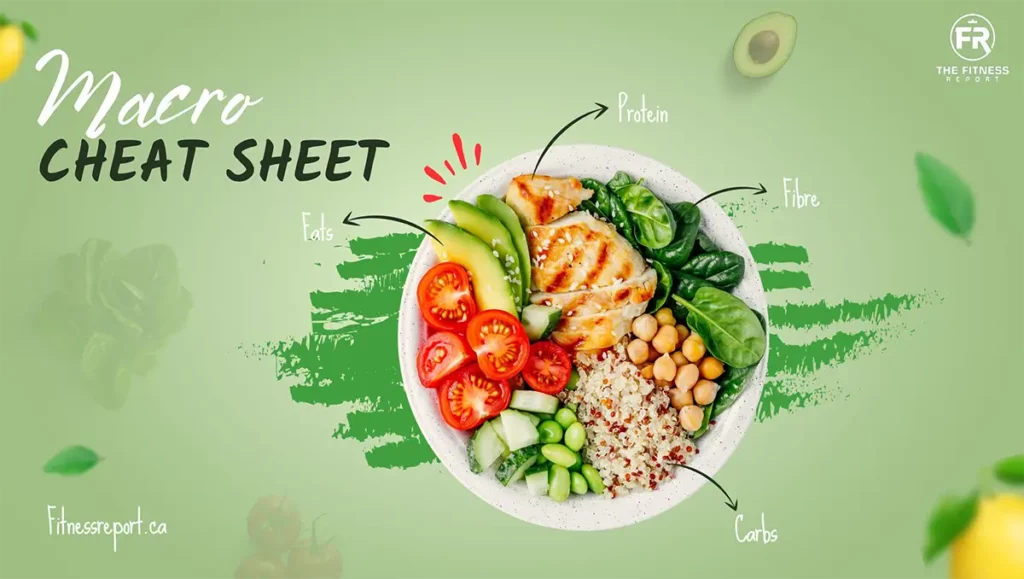Dirty Bulk Vs. Clean Bulk: Which Is Better For Putting On Muscle?
- What Is A Dirty Bulk?
- What Is A Clean Bulk?
- Here Is The Bulk Method I Would Suggest
- Be Considerate Of Your Overall Health
- Bulking Should Be A Long Term Commitment, Not A 60-Day Challenge
- Figure Out What Your Maintenance Calories Are
- You Should Be In A Slight Caloric Surplus
- How Long Should I Bulk For?
- Bulking Conclusion
- Dirty Bulk Vs. Clean Bulk: Frequently Asked Questions
Are you an aspiring athlete or who hopes to bulk up and put on some healthy weight? Making gains is a good option whether you want more muscle mass or whether you want to be able to lift heavier weights. Bulking is also great if you wish to appear bigger and stronger.
If you are a part of bodybuilding communities or groups, you may have heard people debating on dirty bulking vs clean bulking. These terms may sound confusing, but the truth is they do not exactly have anything to do with dirt or cleanliness. They actually refer to a caloric surplus and the kind of calories you intake to gain weight or mass.
Dirty bulking means you intake any type of foods you like to create a calorie surplus. Clean bulking refers to carefully counting extra calories and tracking macros while consuming clean foods to gain weight.
Adequate intake of calories, along with a proper strength training regime, can allow you to gain mass and lift even heavier weights in progressive workouts. Since there are two ways of bulking: dirty and clean, you need to know which one to opt for and what makes the two different. Let’s find out what makes both of these different below!
What Is A Dirty Bulk?

A dirty bulk means creating a calorie surplus by consuming junk foods like ice cream, chips, fast food, pastries, burgers, pizza, donuts, and anything else you want or would not necessarily consider diet food. You eat when you like and consume what you want. Even though a dirty bulk may help with rapid weight gain, it can lead to potential fat gain and health consequences.
Dirty bulking, simply put, means eating in an unrestricted pattern without counting calories. This can cause you to overeat and miss out on a wide variety of foods and nutrients. This is not the best for optimal gym performance, and you can end up with both muscle mass as well as excess gains of fat. This form of bulking is suitable for those that wish to gain weight in the shortest possible time.
Pros Of A Dirty Bulk
- Enables A Caloric Surplus
Some people find it difficult to lose weight, while others have trouble gaining weight. A dirty bulk is a useful tool for individuals that find it super hard to bulk up or gain weight.
The weight gain attained through this type of bulking, when paired with proper resistance training, can allow lean athletes to bulk up beautifully. Plus, a conservative calorie surplus can be slow, whereas a dirty bulk gives faster results.
- It helps Build Strength And Muscle
Programmed or controlled weight gain helps build strength and muscle for a better physique and athletic sports. However, muscle gains require a sufficient calorie surplus of around 10% to 20% additional calories.
A dirty bulk exceeds this range and therefore helps make sufficient strength and muscle gains when combined with resistance training.
Cons Of A Dirty Bulk
- Can Cause Unwanted Fat Gain
Since calories are not usually accounted for in a dirty bulk, it becomes quite easy to enter a huge surplus. This leads to weight gain from both muscle and fat mass. However, for athletic physique and sports strength, your main goal should be to make muscle and strength gains only.
Extra fat gain can make getting back into shape very difficult especially in time for a competition even with a proper exercise regimen. Athletes may find it very hard to achieve a certain weight class through dirty bulking, which affects participation in pre-season and in-season training. Regular gym goers also need to put in extra effort to obtain the right physique if they accumulate too much fat mass.
Foods To Eat In A Dirty Bulk
- High-protein foods like fish, red meat, poultry, dairy, eggs
- Breakfast cereals
- Protein bars
- Protein powder
- Pizza
- Pasta
- Burgers
- Ice cream
- Tacos
- Sushi
- Baked goods (brownies, cake, cookies)
What Is A Clean Bulk?

A clean bulk means avoiding the consumption of everything in sight and neglecting digestive health. You only consume regular foods in greater amounts. These include yogurt, steak, veggies, chicken, rice, etc. A clean bulk leads to slower weight gain over a greater period of time. However, it prevents excessive weight gain and an overload of fatty calories.
Athletes prefer a clean bulk, keep track of all the calories they consume, and watch what they eat. Some may require only a couple hundred extra calories daily, while others may need more.
Note that athletes that opt for the clean bulk also need to monitor their macronutrient intake. Macros include fats, carbohydrates, and protein intake that are a part of your daily meals. Both bodybuilders and athletes tend to consume a lot more protein during the bulking season, as this helps with muscle growth. You will need to input a ton of nutritional math to successfully perform clean bulking and gain lean muscle mass.
Pros Of A Clean Bulk
- Enables Lean Muscle Gains
Nutritional foods consumed in clean bulking help in attaining leaner muscle mass. This is because clean bulking provides the body with more phytonutrients, vitamins, minerals, and fiber that aid muscle gain. Other benefits include better blood flow, fuller muscle pumps, fast muscle recovery, and quick muscle growth.
- Prevents Unwanted Fat Gain
Clean bulking helps gain healthy fat that is subcutaneous instead of visceral. This type of fat is better for the organs and overall body health.
- Improved Digestive Health
Meals rich in fiber and probiotics are not only good for overall health but also a healthy digestive system. A healthy gut allows you to gain and maintain muscle mass more easily. The best part is that a clean bulk diet may be strict but is easy to follow since you only need to eat clean. You avoid all foods that tempt you and cause you to consume too many calories and break a proper regime.
Cons Of A Clean Bulk
- Whole Foods Can Fill You Up Quickly
Skinny athletes may find clean bulk challenging as whole foods quickly satiate hunger. On the contrary, skinny-fat individuals may find eating clean easier as they require only a small calorie surplus to bulk up.
- Kills Your Social Life
It can be quite difficult to maintain a social life and attend dinner gatherings or accept invites to a wedding when you are following a clean bulk diet. Plus, some people find that clean bulk diets do not make much sense as they cut off almost all white tubers and sugary foods.
A diet that is 80% nutritious is equally as good as a diet that is 100% nutritious when it comes to keeping both your mind and body happy and healthy. Due to this, some may even think that clean bulking is a bad idea and should be avoided completely. This often leads to people looking down upon those that are following a similar regime.
Foods To Eat In A Clean Bulk
- Lean proteins like beef, chicken, fish, greek yogurt, protein powders, and more.
- Fruits (apples, bananas, oranges, berries)
- Healthy fats (avocado, olive oils, nuts, nut butters)
- All kinds of legumes and beans.
- High quality carbs from quinoa, oats, whole grain pasta, white potatoes, white rice, brown rice, sweet potatoes.
- Cruciferous vegetables like Brussels sprouts, cabbage, broccoli, and cauliflower.
- Dark leafy greens like collard greens, kale, and spinach.
- Non-starchy vegetables like asparagus, peppers, green beans, mushrooms, onions, carrots, tomatoes, zucchini, and celery.
- Water, diet soda, unsweetened tea, and unsweetened coffee.
Here Is The Bulk Method I Would Suggest
If you are an average gym goer that is looking forward to adding on 5 to 10 pounds, my approach would be a combination of both of the diets above. Follow the 80/20 rule or even go a little lower, 70/30, and you can still ensure you are getting in all of your nutrition but adding in some “dirty” and tasty foods. This will keep your stomach happy and your cravings satisfied.
Be Considerate Of Your Overall Health
Yes, you can dirty bulk and put on 15 to 20 pounds in a couple of months, but that does not mean you should do it. You need to make sure your body is getting all the proper micronutrients (vitamins + minerals) that are not found in fast and processed foods. Focus on long-term health and avoid making fast gains with no value.
Bulking Should Be A Long Term Commitment, Not A 60-Day Challenge

If you want to add quality muscle mass, you should have a proper strategy and exit plan. You should not randomly decide and start eating 4,000 calories per day and do this for a couple of months without a plan.
Instead, count the calories you eat daily and slowly begin with a surplus. See what amount of additional calories works best for you. Eat clean with a few occasional treats so you do not end up binge eating later. Also, make sure to follow a suitable resistance training regime to make the calories count and gain muscle perfectly.
Figure Out What Your Maintenance Calories Are
Maintenance calories are the calories you require to maintain your body weight. This is often what you consume daily. Anything above this will be considered a calorie surplus.
Bulking requires you to consume more calories than your body requires, so knowing the correct extra amount you should consume for a caloric surplus will help bring in positive results. Experts recommend consuming 10% to 20% extra calories of your daily intake for weight maintenance during the bulking stage. Doing so will allow you to gain 0.25 to 0.5% of your body weight each week.
You Should Be In A Slight Caloric Surplus

Maintenance calories are calculated using a calorie counter that takes physical activity levels, sex, age, height, and weight into account. This helps determine your daily caloric intake; you can then add 15% to 20% of this value to the daily intake to get the caloric surplus calories you need to intake for bulking.
For example, if your daily caloric intake for weight maintenance is 3000 calories, you need to consume anywhere between 3300 and 3600 calories based on your experience level. A person that weighs 68 kg or 150 lbs will gain 0.2 kg to 0.4 kg or 0.4 to 0.8 lbs every week using this formula.
Inexperienced weight trainers or novices with six or fewer months of experience should opt for the higher end of the calorie range, while those that are experienced should opt for the lower end to prevent the accumulation of body fat.
Note that if you are gaining less or more than 0.25% to 0.5% of your body weight each week, you will need to adjust your caloric intake accordingly. Once you have calculated the calories you need to consume, you can then further find out your macronutrient ratios based on the following expert recommendations:
- Calories from carbs: 45% to 60%
- Calories from proteins: 30% to 35%
- Calories from fats: 15% to 30%
How Long Should I Bulk For?
It takes a lot of time to build muscle mass. You may see progress in short cycles, but actual bulking will take a very long time. Most athletes have a cutting cycle of 16 weeks. However, a good bulking cycle should last between 9 and 12 months.
Bulking Conclusion
Bulking is effective for gaining muscle mass and being able to lift heavier weights as you progress. Successful bulking will allow you to attain pumped muscles that look huge and well-defined. A healthy regimen will also allow you to build strength as you gain both healthy fat and muscle, so make sure to assess your calorie surplus and consume suitable foods regularly.
Dirty Bulk Vs. Clean Bulk: Frequently Asked Questions

Other Gym Articles You May Like:
The Cheapest Gyms In Vancouver: Working Out On A Budget
Kelowna Gyms: Where To Workout
Nanaimo Gyms & Fitness Centers: Start Working Out Today!
Dawson Creek Gyms & Fitness Centres
The Ultimate Personal Training Guide
Is A Personal Trainer Worth It?
How To Become A Personal Trainer In British Columbia
How Much Do Personal Trainers Make In Canada?
Boulder Shoulder Workout: Get Huge Shoulders
The Best Natural Bodybuilders In The World
Sam Sulek Bodybuilding: From YouTuber To IFBB Pro
The Best Canadian Supplement Brands






